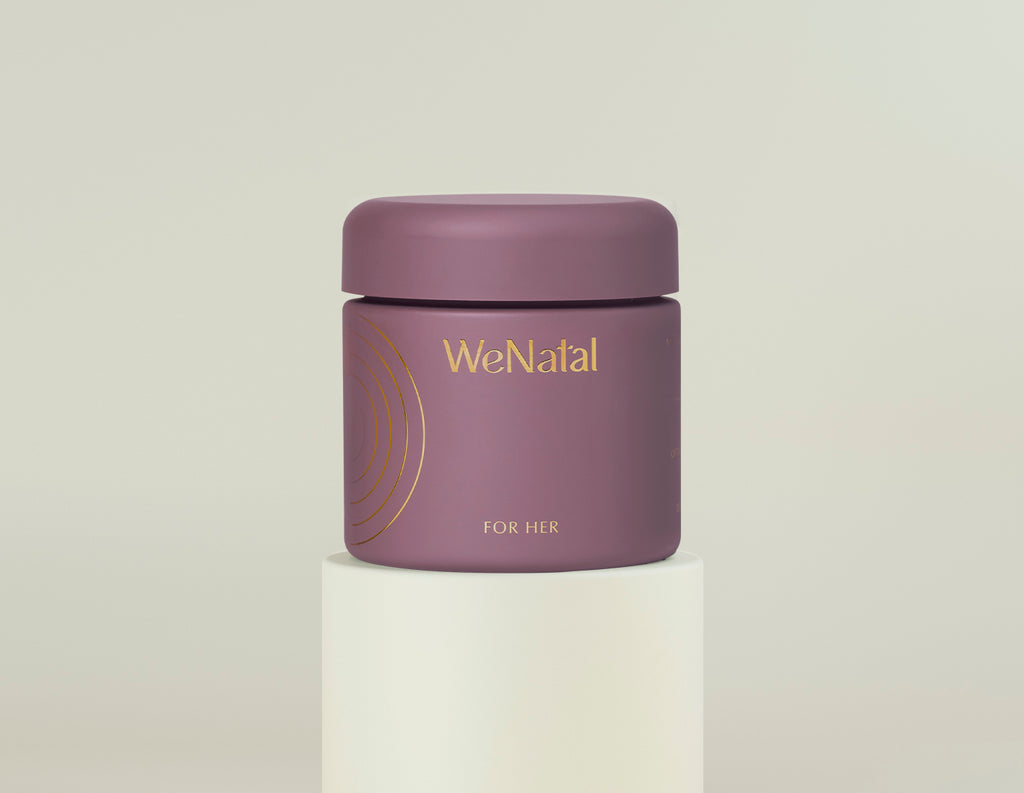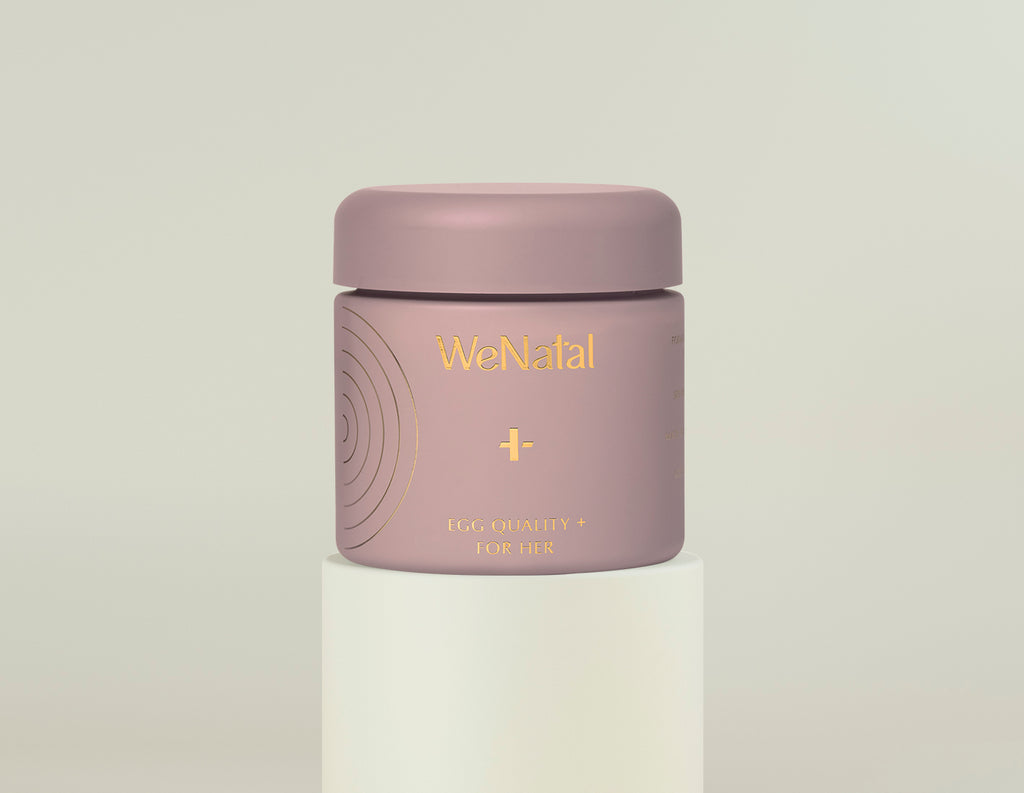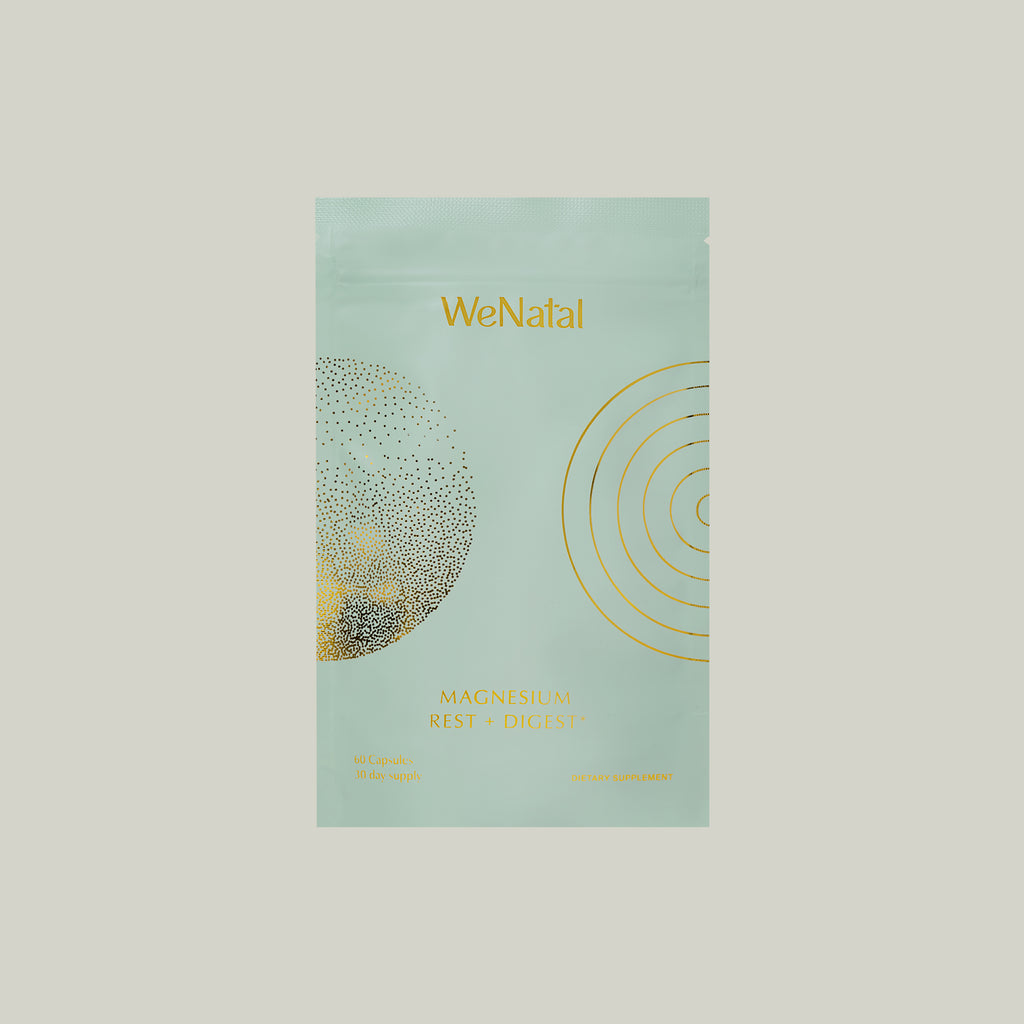
Struggling to conceive can be an emotional and overwhelming journey, but there are steps you can take to support your fertility and overall health. By focusing on foundational health practices, you can optimize your chances of conception.
Fertility challenges can arise from a variety of factors and are more common than many realize. If you are under 35 and have been trying to conceive for a year without success, or if you are 35 or older and have been trying for six months, it may be time to consult a healthcare provider. Additionally, certain health conditions, such as polycystic ovary syndrome (PCOS), endometriosis, thyroid disorders, or male factor infertility can contribute to difficulties in conceiving. Understanding these timelines and potential underlying conditions is crucial in seeking timely support and developing an effective plan to address fertility concerns.
Having trouble getting pregnant? Next steps to take
Here are essential areas to consider:
Get your baseline labs and track your cycle
Understanding your body is the first step. Schedule an appointment with your healthcare provider to assess your baseline fertility, identify necessary lab work, and determine which tests may be covered by your insurance. Additionally, explore opportunities to use direct-to-consumer services for fertility lab work if needed. This includes testing hormone levels such as:
- Estrogen: Plays a key role in regulating your menstrual cycle and preparing the uterine lining for implantation. Low estrogen levels can indicate issues like ovarian insufficiency, while high levels may suggest polycystic ovary syndrome (PCOS) or other hormonal imbalances.
- Progesterone: Essential for supporting pregnancy, progesterone levels can confirm if ovulation has occurred. Low levels may signal problems with ovulation or luteal phase defects.
- Follicle-stimulating hormone (FSH): Helps regulate the menstrual cycle and stimulates the growth of ovarian follicles. Elevated FSH levels may indicate diminished ovarian reserve or approaching menopause.
- Anti-mullerian hormone (AMH): Provides an estimate of your ovarian reserve, or the number of eggs you have remaining. Low AMH levels can suggest a reduced ovarian reserve, while very high levels may be associated with PCOS.
These insights can help identify potential imbalances or underlying conditions that may be affecting your fertility. By understanding your hormone levels and overall reproductive health, you and your healthcare provider can develop a personalized plan to address any issues and optimize your chances of conceiving.
Additionally, tracking your menstrual cycle can provide valuable information about your ovulation patterns. Use tools like basal body temperature tracking or ovulation predictor kits to pinpoint your fertile window. Apps and wearable devices can make this process more manageable and accurate.
Identify vitamin deficiencies
Micronutrient deficiencies can have a significant impact on fertility. Key nutrients like vitamin D, B12, iron, and folate play a vital role in hormone regulation and egg quality. Along with a hormone panel, a nutrition assessment can reveal deficiencies, allowing you to tailor your supplementation accordingly.
Nutrition assessments are a tool for evaluating an individual’s dietary habits, overall health, and potential nutritional concerns. They typically include the following elements:
Review of food and nutrition-related history which involves gathering detailed information about an individual’s dietary habits and patterns. Common methods include maintaining a 3-day food journal or describing a typical day of eating. This information helps assess nutrient intake, meal timing, portion sizes, and dietary preferences or restrictions.
Analysis of recent laboratory results plays a vital role in understanding a person’s nutritional status. Commonly reviewed tests include:
- Complete Blood Count (CBC): Assesses red and white blood cell counts to evaluate overall health and detect conditions like anemia or infection.
- Comprehensive Metabolic Panel (CMP): Provides insight into kidney function, liver function, electrolyte balance, and blood glucose levels.
- Additional Labs: These may include lipid panels, vitamin D levels, iron studies, thyroid function tests, or other specific markers relevant to the individual’s health concerns.
Evaluation of anthropometric measurements provide objective metrics to assess growth, body composition, and nutritional status. Common measurements include:
-Height and Weight: Key for monitoring growth in children and weight trends in adults.
-Body Mass Index (BMI): A tool still commonly used to categorize weight status relative to height.
-Body Roundness Index (BRI): Recent publications have found BRI might be a more accurate measurement for predicting weight-related health risks than body mass index.
-Body Circumferences: Measurements of the waist, hips, and limbs help assess fat distribution and adiposity.
-Skinfold Thickness: Estimates body fat percentage by measuring subcutaneous fat in specific areas.
- Nutrition-focused physical examination (NFPE) involves a systematic evaluation of physical signs that may indicate nutrient deficiencies or malnutrition. This includes examining the skin, hair, nails, eyes, mouth, and muscle tone for abnormalities such as dryness, discoloration, poor wound healing, or muscle wasting.
- Understanding an individual’s medical history is crucial to identifying factors that influence nutritional needs or dietary restrictions. This includes a history of chronic conditions (e.g., diabetes, heart disease, or gastrointestinal disorders), surgeries, medications, allergies, or any other health-related factors impacting nutrition.

WeNatal For Her

WeNatal For Him
Focus on targeted supplementation
We also know that it's very common to encounter additional hurdles when trying to get pregnant (read WeNatal co-founder Ronit's story and co-founder Vida's story). Embarking on a family building journey may require additional supplementation that is often left out of conversations with providers. That's where nutrients like those found in Egg Quality+ may be especially impactful for those who have experienced pregnancy loss or who have been diagnosed with PCOS, etc.
- NAC: NAC supplementation has been found to improve oocyte and embryo quality in women undergoing IVF and has been shown to enhance spontaneous ovulation in women with PCOS.
- Alpha lipoic acid (ALA): ALA has been found to improve egg quality by protecting eggs from oxidative damage and supporting cellular health. A review of the literature has indicated that ALA supplementation can enhance egg quality, improve ovarian function, and increase the chances of successful conception.
- Acetyl L-carnitine (ALC): A literature review concluded that ALC supports egg quality by reducing cellular stress and maintaining hormonal balance due to its antioxidant properties.
- Pyrroloquinoline quinone (PQQ): This compound, with antioxidant properties, has been shown to stimulate the growth of new mitochondria, where nutrients are turned into energy. Growing and maintaining eggs are highly dependent on energy. Through the aging process we become less efficient at creating energy and more sensitive to oxidative stress.
WeNatal’s prenatal vitamins are carefully formulated to address common nutrient gaps in both women and men. By replenishing nutrient stores and supporting overall reproductive health, these products can be a valuable part of your fertility journey.

Egg Quality+

Omega DHA+
Focus on a diverse, whole foods diet
A nutrient-rich diet is the cornerstone of fertility health. Prioritize whole foods like leafy greens, colorful vegetables, lean proteins, low glycemic fruits, and healthy fats such as avocado, nuts, and seeds. These foods provide the vitamins, minerals, and antioxidants your body needs to support hormone balance and egg quality.
At the same time, limit inflammatory foods that can impede nutrient absorption and disrupt your body’s delicate hormonal equilibrium. Reducing alcohol, added sugars, and ultraprocessed foods can improve your overall health and enhance your fertility.
Get adequate sleep to support hormone health
Sleep is critical for recovery and hormonal regulation. Aim for 7 to 9 hours of high-quality sleep each night. Consistent rest helps your body manage stress, repair tissues, and maintain a balanced hormonal environment—all essential for conception.
Creating a bedtime routine, minimizing screen time before sleep, and maintaining a consistent sleep schedule can all contribute to better rest. If you’re struggling with sleep, consider relaxation techniques like meditation, deep breathing or a supportive magnesium supplement.

Rest & Digest Magnesium
Incorporate consistent movement and strength training
Physical activity improves blood flow, supports a healthy weight, and enhances overall well-being. This small review found that resistance training appears to have the greatest reproductive benefits relative to solely relying on aerobic activity. Strength training, in particular, can boost metabolic health and balance hormones. Aim for at least 30 minutes of movement daily, whether it’s walking, yoga, or weightlifting.
Finding a routine that you enjoy is key to staying consistent. Remember, it’s not about perfection but about creating sustainable habits that support your fertility.
Minimize stress
Stress can interfere with hormone regulation and ovulation. While minimizing stress is easier said than done, especially when trying to conceive, it’s a vital part of the journey. Practices like mindfulness, journaling, or connecting with a support group can help you manage anxiety and maintain perspective.
Consider carving out time each day for self-care, whether it’s a walk in nature, a calming bath, or a few minutes of deep breathing. WeNatal’s approach to holistic health recognizes the importance of mental and emotional well-being in your fertility journey.
Finding support for fertility challenges with WeNatal
Navigating fertility challenges can feel isolating, but you don’t have to do it alone. At WeNatal, our mission is to empower and support individuals and couples on their path to parenthood. Our comprehensive prenatal vitamins are designed to provide the nutrients your body needs to thrive and support whole-body health.
By addressing foundational areas like nutrition, sleep, movement, and stress management, you’re taking meaningful steps toward optimizing your fertility. Remember, you’re not just working toward a positive pregnancy test—you’re building a foundation for a healthy and vibrant future.
References
Agarwal A, Sengupta P, Durairajanayagam D. Role of L-carnitine in female infertility. Reprod Biol Endocrinol. 2018;16(1):5. Published 2018 Jan 26. doi:10.1186/s12958-018-0323-4
Di Tucci C, Galati G, Mattei G, et al. The role of alpha lipoic acid in female and male infertility: a systematic review. Gynecol Endocrinol. 2021;37(6):497-505. doi:10.1080/09513590.2020.1843619
Kim TW, Jeong JH, Hong SC. The impact of sleep and circadian disturbance on hormones and metabolism. Int J Endocrinol. 2015;2015:591729. doi:10.1155/2015/591729
Lewinski A, Brzozowska M. Female infertility as a result of stress-related hormonal changes, GREM Gynecological and Reproductive Endocrinology & Metabolism (2023); Volume 3 - 2/2022:094-098 doi: 10.53260/grem.22302035
Mussawar M, Balsom AA, Totosy de Zepetnek JO, Gordon JL. The effect of physical activity on fertility: a mini-review. F S Rep. 2023;4(2):150-158. Published 2023 Apr 14. doi:10.1016/j.xfre.2023.04.005
Schweitzer K. Could the Body Roundness Index One Day Replace the BMI?. JAMA. Published online October 4, 2024. doi:10.1001/jama.2024.20115
Skoracka K, Ratajczak AE, Rychter AM, Dobrowolska A, Krela-Kaźmierczak I. Female Fertility and the Nutritional Approach: The Most Essential Aspects. Adv Nutr. 2021;12(6):2372-2386. doi:10.1093/advances/nmab068
Vitagliano A, Petre GC, Francini-Pesenti F, et al. Dietary Supplements for Female Infertility: A Critical Review of Their Composition. Nutrients. 2021;13(10):3552. Published 2021 Oct 11. doi:10.3390/nu13103552
Yan T, Nisar MF, Hu X, et al. Pyrroloquinoline Quinone (PQQ): Its impact on human health and potential benefits: PQQ: Human health impacts and benefits. Curr Res Food Sci. 2024;9:100889. Published 2024 Oct 22. doi:10.1016/j.crfs.2024.100889



